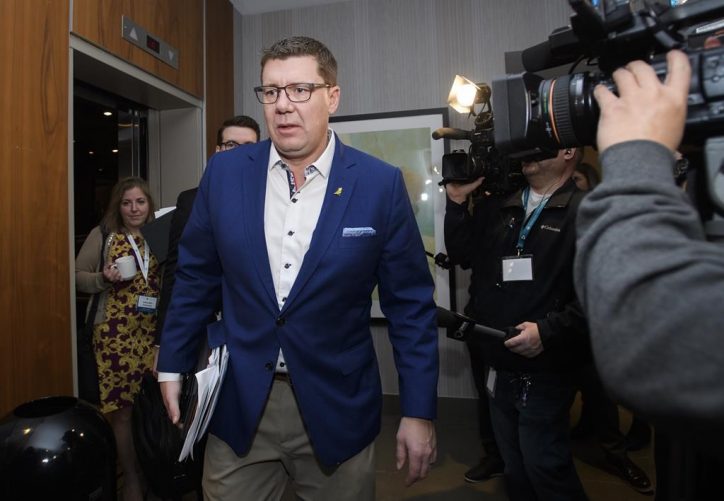Saskatchewan’s chief electoral officer is recommending an advisory group be struck to provide advice on whether to go ahead with October’s provincial election.

Michael Boda recently sent four recommendations to Premier Scott Moe‘s office about the upcoming vote given the COVID-19 pandemic.
Boda said staff wouldn’t be able to transition to a postal ballot for an October vote, but could for a spring election if work on that started right away.
“We don’t have the capacity as an institution,” he said on Tuesday. “We would need to use vendors in order to assist us and we would be competing with all of those jurisdictions in the United States that are transitioning to postal ballot.”
He recommends the advisory group be set up with the province’s chief medical health officer and house leaders from the government and Opposition to discuss the election and COVID-19.
“They will discuss with me the current situation and offer advice to me on whether we should proceed or not with the election, and then I would give advice to the premier, who then ultimately makes the decision,” Boda said.
The election is set for Oct. 26.
- Capital gains changes are ‘really fair,’ Freeland says, as doctors cry foul
- ‘Dangerous message’: Experts slam anti-sunscreen claims circulating online
- Ontario doctors offer solutions to help address shortage of family physicians
- As fake Botox cases prompt alert in U.S., Canada says no new issues reported
Boda said a final recommendation should be made in September before any writ period.
“If it is not a safe environment, then I wouldn’t be recommending we move forward, but I will adjust the system so that, regardless, we will ensure that there is greater safety.”
Saskatchewan’s chief medical health officer says there will always be a risk associated with gatherings — including elections — until there’s a vaccine in place.
“For other activities, like for example voting, special provisions can apply which can minimize the risk,” said Dr. Saqib Shahab on Thursday. “Of course, if there was a significant increase in COVID-19 activity, those provisions would have to be looked at again.”
While Shahab says it’s possible to have an election, he says it’s impossible to predict when we would see a surge or spike in cases.
Boda said his planning for October will include considerations such as how large spaces need to be for people to vote.
He is asking the government to secure schools and other public facilities and would like them closed on election day to ensure physical distancing.
He’s also asked the government for access to personal protective equipment, such as masks.
“We certainly don’t want to take anything away from front-line health-care workers,” he said.
Finally, Boda wants the legislative assembly to give him emergency powers in legislation to change procedures and adapt to COVID-19 as needed.
“We will work to ensure that Elections Saskatchewan has the resources and legal authority necessary to conduct the election safely,” government house leader Jeremy Harrison said in a statement.
Opposition NDP house leader Cathy Sproule said both sides need to collaborate on the election and safety should be the main priority.
“Any of us who get into politics are wanting to ensure that our democracy’s protected and getting as many people out to vote as possible,” she said.
The NDP has been calling for politicians to reconvene to scrutinize government spending. Sproule said she wants to see a full budget presented before the election.
She said her party is also discussing how candidates can campaign safely.
“Are we going to yell at them from the sidewalk when we knock on their door?”
Saskatchewan Party executive director Patrick Bundrock said campaigning and fundraising activities remain on hold.
With files from David Baxter.
Questions about COVID-19? Here are some things you need to know:
Health officials caution against all international travel. Returning travellers are legally obligated to self-isolate for 14 days, beginning March 26, in case they develop symptoms and to prevent spreading the virus to others. Some provinces and territories have also implemented additional recommendations or enforcement measures to ensure those returning to the area self-isolate.
Symptoms can include fever, cough and difficulty breathing — very similar to a cold or flu. Some people can develop a more severe illness. People most at risk of this include older adults and people with severe chronic medical conditions like heart, lung or kidney disease. If you develop symptoms, contact public health authorities.
To prevent the virus from spreading, experts recommend frequent handwashing and coughing into your sleeve. They also recommend minimizing contact with others, staying home as much as possible and maintaining a distance of two metres from other people if you go out.
For full COVID-19 coverage from Global News, click here.





Comments